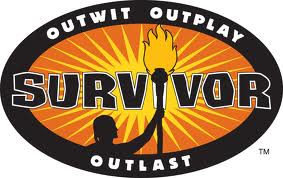First of all, you really should not even be trading your very first year you start in the markets. The first year should be spent finding out what the right questions to ask even are not trying to beat professionals at their own game. Most new traders don’t survive their first year because they trade first and do their homework second, that is even if they ever get around to doing it at all.
- If you do want to experience some trading the safest way is paper trading, on a simulator, or with a very small amount of capital you fully expect to lose. Paper trading and simulators help with learning the actions involved in trading but leave out the true emotional impact of trading real money with meaningful size, trading small will give you a taste of the engagement of emotions and ego when entering into the real world of market action when you have skin in the game.
- You must understand that the preservation of your capital has to be your #1 priority and your returns and growing it is just #2 on your priority list. The quickest way to go broke is to attempt to get rich quick.
- Forget even thinking about trying to trade for a living until you have proven yourself as a consistent trader and have a large capital base to trade versus reasonable monthly bills. The vast majority of traders have multiple streams of income, trading for monthly bills without a huge safety net is a pressure few can really handle with out it effecting their trading itself.
- Find a safe environment with real traders at different levels that can help speed up your learning curve. There are many successful traders that hang out for fun on social media and are generous with their advice. I have a free facebook trading group for serious traders at all levels, e-mail me at [email protected] for an invite.
- No manner your place of expertise in your current professional field you have to enter trading humble with a beginner’s mind. Arrogance and ego is the root cause of most new traders quick failure in the markets.
- New traders must understand that all traders are wrong, some traders entire profitability is based on having big winning trades and small losing trades even with bad winning percentages. Those with high winning percentages have to cut their few losses quickly so as not to give back lots of profits on their few losing trades.
- Successful trading is not just about numbers and a sure fire trading method. As a trader you must learn the crucial need for proper position sizing, probabilities of your trade being successful, how to exit with a profit while it is still there, your risk of ruin, and how to manage your mind, emotions, and ego in real time as your account capital fluctuates.
- New traders must develop a filter where they start to understand what matters and what does not. What leads to profits and what leads to noise and confusion.
- You need to find out what the most helpful books are for real trading and read them all, this will give you a chance to see what works and what does not. See the book reviews on Amazon to find the best. Here are some suggestions from a poll I did.
